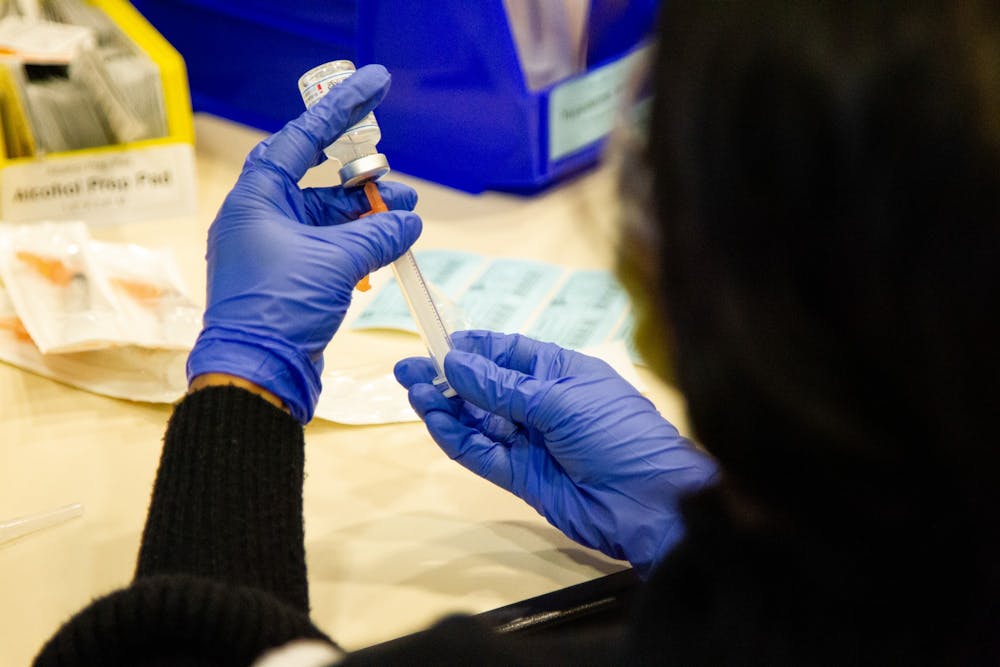The last two years have produced a surge in coronavirus research, with investigators racing to learn more about COVID-19 to recommend public health measures, vaccines and booster shots.
However, the last two months have been overtaken by research specifically on the omicron variant. So — what have we learned?
Recent lab studies and clinical data suggest that the omicron variant is responsible for the surge in COVID-19 cases that we’re currently seeing. On Dec. 21, the CDC said that likely over 70 percent of cases in the U.S. are actually omicron given the delay we have in sequencing and reporting.
It has been proven that omicron is milder than other variants of the virus, but more transmissible. The new variant thrives in cells in the upper respiratory tract, instead of the lungs — where COVID-19 has the ability to cause fatal breathing problems.
Molecular research has also proven that the variant has two specific mutations that are known to boost the virus’ ability to enter cells. Omicron, with all of these spike mutations, is the first variant where we’ve had to worry about immune evasion.
UNC has been at the forefront of COVID-19 research since the beginning of the pandemic – and that hasn’t changed with the omicron variant.
The Coronavirus Variant Sequencing Surveillance Program, led by a team of UNC researchers, was the first to identify a case of the omicron variant in North Carolina.
In deeper biomedical studies at UNC, computational modeling studies were used to predict the structure and ability of the omicron variant to avoid immune responses from the body. The findings suggest that although the mutations do exist, the variant isn’t capable of fully escaping the host immune responses — suggesting that the vaccine and booster shot offer some protection over the new variant.
Another study looks at how the virus rapidly evolves in patients who are considered immunosuppressed, and how the new variant causes risks for prolonged infection. This study had multiple implications for public health, and the need for education about self-isolation until one tests completely negative. The authors stress the need for vaccination and available therapies for those affected by “long COVID-19.”



